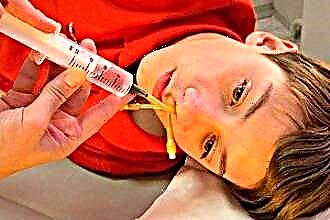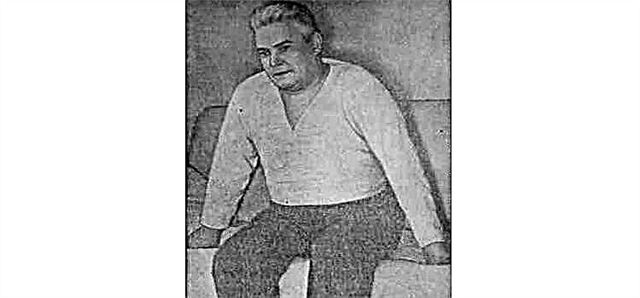Experiences and frequent stress negatively affect the nervous and cardiovascular system, causing cardioneurosis (cardiac neurosis). It belongs to the psychosomatic group of pathologies. Such diseases develop under the influence of mental factors. Symptoms and treatment of cardioneurosis are related. The doctor focuses on its manifestations when drawing up a therapy regimen. Cardiac neurosis is differentiated by the method of exclusion, since it is characterized by signs of many other pathological processes. During the examination, no special organic lesions are detected, therefore, the diagnosis may be delayed due to the abundance of patient complaints.
Features of the disease
Cardioneurosis is an organic type of neurosis. The patient provokes his appearance with internal feelings, fears and other negative emotions. The key element in the development of pathology is the psyche and its effect on the heart. The susceptible people who take all events "to heart" know better than others what cardioneurosis is. Their disease is most pronounced. Stress-resistant people can last for years, but even they are not immune from nervous exhaustion.
Psychotherapists, explaining what a neurosis of the heart is, describe it as a circle of recurring events:
- At first, a person is in a stressful state for a long time, which gradually develops into anxiety.
- The second step is to aggravate anxiety and the emergence of uncontrolled fear for your health.
- The result of the situation is panic and heart symptoms.
The attacks can be repeated an infinite number of times. It all depends on the state of the human psyche. You can break the circle of events on your own using various methods of treatment, but professional help is often required.
It is more difficult to treat this kind of disease in children precisely because of their shyness and fear of a psychologist or psychotherapist.
The child is afraid that he will not be understood, and the doctor will only put the stigma of a "psychopath". Hiding their problems and unwillingness to be treated leads to isolation and the development of heart pathologies in the future.
Cardiac symptoms
With cardioneurosis, the main discomfort for patients is brought about by attacks of pain in the heart. Their intensity varies, as does the duration, which varies from 15 minutes to 2-3 days. An attack occurs mainly after stress. Its frequency is individual in each case. Suspicious people can experience discomfort 5 times a day. Other patients suffer from a seizure of pain in the heart only 1-2 times a year due to nervous exhaustion.
Patients remember well the manifested pain in the heart and begin to worry strongly about their condition. The situation comes to an obsession with an imminent death. Cardiologists and therapists have to deal with especially suspicious patients. Doctors try to explain to the patient that no organic lesions have been identified, and recommend contacting a psychotherapist.
Getting an overall clinical picture is problematic as patients describe their condition in different ways. We have to focus on the most common cardiac symptoms of cardioneurosis:
- aching and throbbing pain in combination with increased sensitivity of the skin from the heart;
- feeling of emptiness in the chest;
- pain all over the left side of the body with a focus in the region of the heart;
- pain radiating to the back, head, neck and genitals;
- oppressive sensation in the chest;
- stitching and cutting sensations in the chest, preventing deep breathing.
Painful sensations in the chest are not relieved by the "Nitroglycerin" tablets and other heart medications and are reduced only after rest. It is possible to distinguish an attack of cardioneurosis from heart disease by the following nuances in the patient's behavior:
- Describing the symptoms of a neurosis of the heart, the patient tries to decorate it and each time the story changes slightly.

- An attack of cardioneurosis causes obsessive thoughts in a person about imminent death and the "severity" of cardiac pathology. He becomes overly concerned about his health and often suffers from panic attacks.
- An attack makes a person fuss excessively, actively gesticulate, alternately apply cold and warmth to the chest and drink all heart drugs in a row.
People who really suffer from diseases of the cardiovascular system behave with restraint. They can take the medication recommended by their doctor and call an ambulance if necessary. With neurosis, a person is too fussy, which betrays his real illness. Calling an ambulance during an attack is often triggered by obsessive thoughts. Visiting doctors should distinguish between real heart pathology and panic attacks and advise on how to treat cardioneurosis.
General clinical picture
The cardiac symptoms of cardioneurosis of patients are most disturbing, but other manifestations are also characteristic of the disease. Their intensity varies depending on the individual characteristics of the person. The general symptoms of cardiac neurosis during an attack are usually as follows:
- a feeling of anxiety that turns into panic;
- obsessive thoughts (obsessive syndrome) about an imminent death and the development of fatal pathologies;
- a feeling of a lump in the throat;
- lack of oxygen;
- frequent shallow breathing;
- feeling tired even at the slightest overload;
- inability to take a deep breath;
- headache;
- excessive sweating;
- alternating sensations of heat and cold throughout the body;
- loss of consciousness or light-headedness.
After the end of the attack, the person feels a breakdown and drowsiness. Heavy thoughts appear in the head that prevent you from falling asleep at night.
Causes
The development of cardioneurosis is influenced not only by external factors, but also by internal ones. A complete list of reasons can be seen below:
- hormonal surges associated with illness, adolescence, pregnancy, menopause, medication;
- long course of pathology without improvement;
- constant feeling of stress;
- insomnia;
- frequent physical and mental overload;
- intoxication due to the effects of chemical compounds on the body;
- bad habits;
- poorly formulated diet.
In childhood, the cardiac type of neurosis occurs against the background of stress at school or because of quarrels in the family, divorce of parents and other factors that negatively affect the fragile psyche. In adolescence, the reasons remain the same, but the situation is aggravated by hormonal changes.
First aid
The manifestation of cardioneurosis is difficult to predict, especially if a person has not previously experienced such discomfort. You can find out how to get rid of an attack of cardiac neurosis from the information below:
- During an attack, it is better for the patient to find a well-ventilated room to compensate for the lack of oxygen.
 If possible, it is advisable to lie on a sofa or bed. If they are absent, the floor will do.
If possible, it is advisable to lie on a sofa or bed. If they are absent, the floor will do.- Take any light drug with a sedative (sedative) effect ("Valokardin", alcohol tinctures on motherwort, lemon balm, valerian).
- Take your pulse. If it is well palpable and does not fail, this means that there are no severe functional impairments.
- Calm down and lie, trying not to think about anything. Excessive fuss, constant measurements of blood pressure, pulse and calls to relatives and friends will only increase anxiety.
Relief of the condition occurs in about 15-20 minutes. To prevent further attacks, it is advisable to see a therapist. He will send for examination and, based on its results, draw up a list of recommendations.Medication is required only in severe cases. In most cases, you can do with lifestyle correction and traditional medicine. If the painful sensations in the heart have not passed or the patient is in a pre-faint state, then an ambulance must be called.
Drug treatment
The drugs are prescribed to relieve pain, normalize the heart rhythm, stop shortness of breath and calm the nervous system. The following groups of medicines are mainly used:
- It is advisable to use sedative medicines in a course of at least 1-2 months in order to obtain a lasting effect. Alcoholic tinctures on herbs (motherwort, peppermint, valerian) and drugs with sedative effects (Valocordin, Validol, Persen) are used.
- Antidepressants (Pyrazidol, Amitriptyline, Imizin) suppress depression, improve mood and stimulate the nervous system. Initially, they often cause drowsiness due to strong sedation, but gradually the side effect disappears.
- Tranquilizers ("Seduxen", "Phenazepam", "Nitrazepam") relieve nervous tension and eliminate anxiety and fear. If the patient is more worried about the phobias that have arisen against the background of an attack of cardioneurosis, then it is better to take "Seduxen". With insomnia, Nitrazepam effectively helps, and Phenazepam is used to suppress depression.
- Concomitant headaches can be eliminated with analgesics (Citramon, Spazgan, Drotaverin).
- Vitamin complexes with a high concentration of B vitamins ("Neurovitan", "Neuromultivit") are used to improve the state of the nervous system.
 Potassium-containing drugs ("Asparkam", "Orokomag") are used to stimulate the leading function of the heart and normalize the transmission of nerve impulses.
Potassium-containing drugs ("Asparkam", "Orokomag") are used to stimulate the leading function of the heart and normalize the transmission of nerve impulses.
Vitamins, potassium-containing preparations and alcoholic tinctures with sedative effects can be drunk without any particular concern. Contraindications should be studied for chemical-based analgesics and sedatives. Do not take antidepressants and tranquilizers on your own. They have a strong effect on the nervous system, which is why they are sold with a doctor's prescription.
The exceptions are children under 18 years of age and women during pregnancy and lactation. For these groups, drug therapy is selected only by the attending physician, who, after the examination, will tell you how to treat cardiac neurosis and advise on safe methods. In other cases, self-medication is possible only at your own peril and risk.
Non-drug therapy
Treatment of cardioneurosis is possible without pills. The essence of non-drug treatment is lifestyle correction:
- try not to get into stressful situations;
- maintain a positive attitude;
- work no more than 7-8 hours a day and take 5 minute breaks 1 time in an hour and a half;
- devote at least 6-8 hours to sleep;
- not overwork physically and mentally;
- walk every day in the fresh air for 1-2 hours;
- play sports (in moderation), do morning exercises;
- give up bad habits (smoking, drinking alcohol).
Gymnastics for cardioneurosis should be moderate and aimed at strengthening the heart muscle. Running, swimming, and aerobic exercise work well.
The patient will have to change his diet to get rid of the neurosis of the heart. Moving away from fast food, sweets, spices and other unhealthy foods in favor of healthy foods can significantly improve your overall health. There should be more vegetables and fruits in the daily menu. Eat preferably at least 4-5 times a day, in small portions. The last meal should be 3-4 hours before bedtime.
People who devote most of their time to work need to dilute their busy schedule. You should rest at least 2-3 hours a day doing your favorite hobby, listening to music or attending a massage.
Psychotherapy
By taking medication alone, you can stop the manifestations of the disease, but not eliminate its cause. To completely cure cardioneurosis, you will have to normalize the work of the nervous system with the help of a psychologist or psychotherapist. Communication with a specialist will eliminate the feeling of anxiety, clear the head of obsessive thoughts and strengthen the psyche to effectively resist panic attacks.
Specialists mainly use the following methods of psychotherapy:
- Rational treatment. The doctor helps the patient understand why seizures happen and then teaches them how to deal effectively with them.
- Cognitive Behavioral Therapy. During the conversation, the psychotherapist talks about the patient's actions that provoke the development of cardioneurosis and points out his mistakes in order to prevent their recurrence in the future.
- Family sessions. For a conversation with a specialist, you can come with loved ones with whom the patient spends most of the time. Family psychotherapy is most effective for the treatment of married couples and children. During the sessions, the doctor will learn about the problems and advise on how to eliminate them.
- Hypnosis is used if the patient is unwilling or unable to share the hidden reasons for his condition. The specialist will put him to sleep and, on a subconscious level, learn about all the problems.
It usually takes about 10-15 sessions to achieve a noticeable result. It is desirable to combine them with lifestyle correction. Medical treatment will be advised by your doctor if necessary.
Folk remedies
 Folk remedies help with the treatment and relief of symptoms of heart neurosis. In most cases, sedative herbs are used. They actually have no contraindications, except for individual intolerance, but during preparation it is important to observe the dosages indicated in the recipe. If they are exceeded or underestimated, then the effect will be too strong or completely absent. Typically, 1-2 tbsp is taken for cooking broth. l. the main ingredient in 500 ml of water or alcohol. Then the resulting mixture is thoroughly mixed and left to infuse.
Folk remedies help with the treatment and relief of symptoms of heart neurosis. In most cases, sedative herbs are used. They actually have no contraindications, except for individual intolerance, but during preparation it is important to observe the dosages indicated in the recipe. If they are exceeded or underestimated, then the effect will be too strong or completely absent. Typically, 1-2 tbsp is taken for cooking broth. l. the main ingredient in 500 ml of water or alcohol. Then the resulting mixture is thoroughly mixed and left to infuse.
The following folk remedies are most effective for treating and relieving symptoms of heart neurosis:
- A decoction of mint and valerian roots is good for soothing the nerves. You can prepare a medicine by taking 1 herb or both in equal proportions. It is taken instead of tea, 2 times a day.
- The combination of dried apricots, raisins and hawthorn fruits, viburnum and mountain ash will saturate the body with microelements necessary for the normal functioning of the heart and nervous system. Prepared like a regular decoction. You can drink it instead of tea 2-3 times a day.
- Drinking warm milk at night with the addition of 1 teaspoon of honey improves sleep and calms the nervous system.
The following fees can be used as a remedy for the treatment of cardioneurosis:
- mint, valerian roots, hop cones, three-leaf watch;
- hawthorn fruits, oregano, motherwort;
- hop cones, yarrow, valerian roots, lemon balm.
After preparing one of the decoctions, it should be taken 3 times a day, 100 ml. The duration of the course is 1 month. If allergy symptoms occur, treatment of heart neurosis with folk remedies is stopped, and you should consult a doctor as soon as possible.
Forecast
Cardioneurosis is successfully eliminated in the early stages. Residual effects and relapses do not occur with an integrated approach to treatment.
In a neglected state, the disease adversely affects the psychoemotional background of the patient. He becomes suspicious, overly irritable and fearful. A constant feeling of anxiety negatively affects all internal processes. Basically, the stool is disturbed, hypertension and angina pectoris develop. Treatment will be aimed at reducing nervous excitability and stabilizing the digestive and cardiovascular systems.
Cardioneurosis is a psychosomatic illness. Its development is provoked by frequent stress and overwork.The main problem arises in the diagnostic process. To differentiate cardiac neurosis, the therapist will have to exclude all similar pathological processes. After a successful diagnosis, the patient is given recommendations for correcting his lifestyle. At advanced stages, it is possible to prescribe medications. As a supplement to the course of treatment, psychotherapy and folk recipes are successfully used.


 If possible, it is advisable to lie on a sofa or bed. If they are absent, the floor will do.
If possible, it is advisable to lie on a sofa or bed. If they are absent, the floor will do. Potassium-containing drugs ("Asparkam", "Orokomag") are used to stimulate the leading function of the heart and normalize the transmission of nerve impulses.
Potassium-containing drugs ("Asparkam", "Orokomag") are used to stimulate the leading function of the heart and normalize the transmission of nerve impulses.

